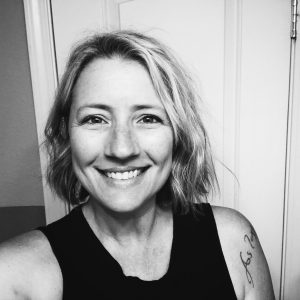The final deadline has passed, and your book has been submitted. Now what?
If you have a spring delivery, you might be struggling to find something to do with your staff for the rest of the school year. As a brand-new yearbook adviser, I know I was. Although I’ve taught English for nearly 20 years, my first year teaching yearbook was the 2020-2021 school year – you know, the one where we all just tried to survive.
In some ways, it was a great year to be new: I didn’t have any expectations of what the program or the book should look like, and neither did my school community. Because our program was completely virtual and we didn’t have any events anyway, I had more time to learn photography so I could teach it to my staff.
But it was also challenging. I didn’t have a classroom full of sample yearbooks to use for inspiration or guidance because I was working from home. I didn’t get to attend in-person workshops to teach us what to do and how to do it.
No matter where you are at in your yearbook journey, there is always room to improve. The key is honest self-evaluation.
How to Self-evaluate
The first step in a strong self-evaluation is gaining a clear idea of what makes a great yearbook.
Using the tools provided by Walsworth and relying on the expertise of my amazing sales rep, I registered for the webinar 27 Amazing Award Winners with Mike Taylor and Jim Jordan. You can watch a replay if you missed it. If you are like me, you aren’t feeling like winning an award is in the realm of possibilities…yet. But using those exemplar books for inspiration is a sure way to improve your own publication regardless of where you are in your own yearbook journey.
Walsworth also has other resources that can help you see what other yearbooks are doing. Your rep can show you other yearbooks that they work with or the newest volume of Possibilities, a printed book full of examples of what other schools did in their yearbook. The showcase galleries on the Walsworth website contain areas for theme, cover and more.
I know that some people use the time after their final deadline to start preparing next year’s book, but I didn’t have any returning staff, and that wasn’t a great option for me. Here’s one thing I did to help finish out our year and set lofty goals for the next.
I took the slides from the webinar and put them into my own slide deck so I could show my students. In the speaker notes, I added the feedback from Mike and Jim so I could review it with my own staff. Then I had them go through our recently delivered book and complete their own evaluation based on what they had learned from the webinar. Feel free to use mine as is or adapt it to fit your own needs. The evaluation doesn’t have to be long, but the questions will get your students thinking.
This practice is invaluable for students. First, they see what an award-winning publication looks like and hear the experts talking about what makes it stand out. Then they use this knowledge to critique their own work. I do make sure to remind them that they accomplished something monumental, and they should feel no shame if they don’t feel our book is up to snuff. It’s a step in the journey, and I’m proud of what we achieved.
After completing this activity, my staff reported that they had a better understanding of the components of a solid yearbook, and they felt they would be better prepared to complete the next book (if they weren’t all graduating). It’s helpful to remind them that this exercise is not intended as a vehicle for calling out anyone on the staff, but to reflect on our collective work, which includes celebrating our successes.
What Else?
This is a great start for your staff. When you are ready for the next step, Walsworth can help with that too. Check out Walsworth’s eBook collection, including Let’s Have Some Fun. The Book is Done!, Jim Jordan’s 40 Things to Do After the Yearbook is Done and Distribution Day: The Big Reveal for helpful information about this time of year.
While it’s best to start by reviewing your book yourself, if you are interested in having someone else evaluate your book, state and national journalism organizations provide opportunities for that as well as well as some summer workshops. Talk to your rep for more information about what’s available in your area.
And so, I prepare again to embark on this journey with my new staff. At least I know what I’ll do with them when their book is complete.





